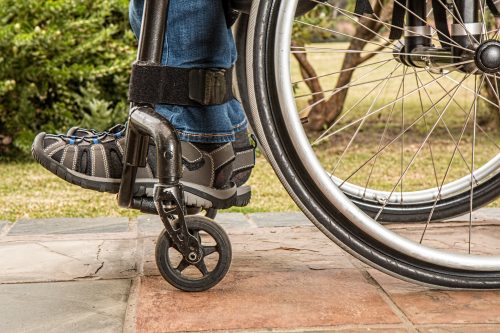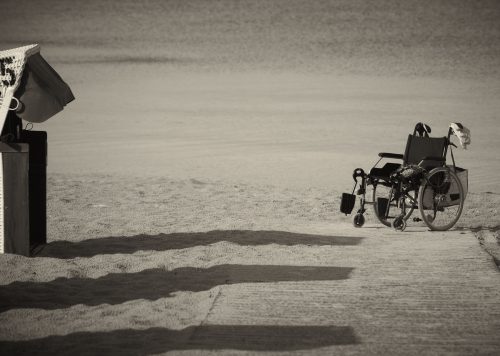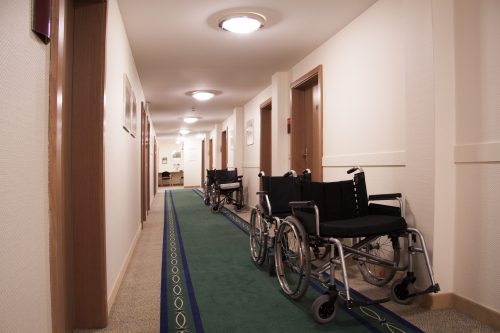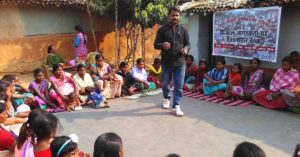MY VIEW: The Rights of Persons with Disabilities Bill 2016 Is Historic, and Here’s Why
In a historic moment, the government and opposition recently united to pass the Disabilities Bill, 2016 in both Houses of Parliament. Shampa Sengupta from the National Platform for the Rights of the Disabled (NPRD) takes a look at this momentous legislation and what it means for India’s disabled population.
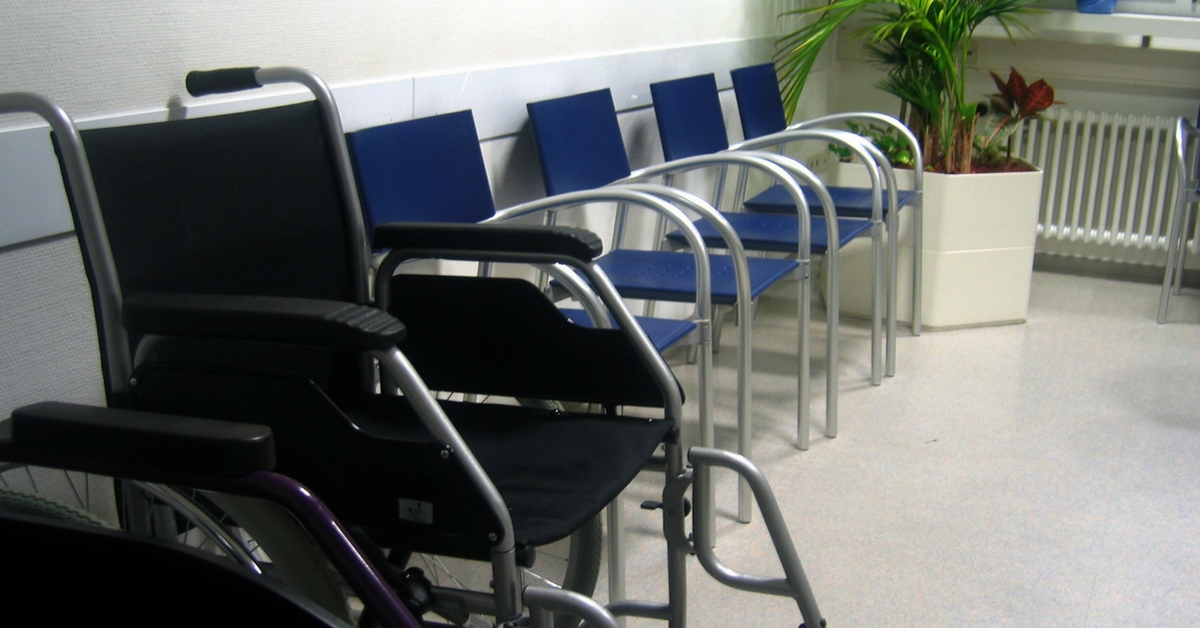
In a historic moment, the government and opposition recently united to pass the Disabilities Bill, 2016 in both Houses of Parliament. Shampa Sengupta from the National Platform for the Rights of the Disabled (NPRD) takes a look at this momentous legislation and what it means for India’s disabled population.
The Rights of Persons with Disabilities Bill (RPwD) – passed recently in both the Rajya Sabha and Lok Sabha – signifies a win after a very long struggle. The 1995 Disability Law proved to be inadequate soon after it was passed. In fact, the Government started the process of amending the same soon after passing it! While this process dragged on for years, India ratified the United Nations Convention on the Rights of Persons with Disabilities (UNCRPD). As a result, the 1995 law – based on a medical model – became redundant.
Finally, the Indian Government accepted the demands of activists for a new law, and in 2010 constituted a Committee under Dr. Sudha Kaul to draft it. There might be a large number of variations between the recommendations of the Sudha Kaul committee, and the bill actually passed in December 2016; however, the RPwD Bill is definitely going to bring major positive changes in the lives of millions of disabled people in our country.
This new legislation defines 21 categories of disabilities where the old one only defined seven. This increases the responsibility of agencies working in the disability sector. Now, the real task starts—to bring together issues that affect lives of very diverse people, and work towards the common goal of overseeing uniform implementation of this law. Disability is not a homogenous issue and does not affect everyone in the same way. There are more than 100 clauses in the RPwD Bill, and it is obvious that all of them will not be applicable to all people under the disability category equally.
Reasonable accommodation required by all these people varies, and this rich diversity is reflected in this law.
The Indian Penal Code on violence against women already includes disability-specific clauses. But, for the very first time in India, we have gender-specific clauses as part of a disability legislation. One needs to highlight here that the provisions for women are not restricted to one particular chapter, but are integrated in many important chapters like Health, Social Security, and others.
This Bill says that “appropriate Governments shall, within the limit of their economic capacity and development, formulate necessary schemes and programmes to safeguard and promote the rights of persons with disabilities for adequate standard of living, to enable them to live independently or in the community.” This is a marked improvement as the old law only talked about affirmative actions like reservation in jobs and employment.
However, some of us are worried about the words “within the limit of its economic capacity”, and activists are already working to see that the rules under this new law are framed in such a manner that the stipulation that “the quantum of assistance to the persons with disabilities under such schemes and programmes shall be at least 25 % higher than the similar schemes applicable to others” is applied to all poverty alleviation schemes as mentioned in this law henceforth.
Unfortunately, some in the disability sector don’t see this law as a reason for celebration. There are some who feel that the law should have been closer to the UNCRPD’s spirit. There are even certain conflicting clauses in this law. For example, it says, “The appropriate Government shall ensure that the persons with disabilities enjoy legal capacity on an equal basis with others in all aspects of life and have the right to equal recognition everywhere as any other person before the law,” and yet it also talks about the provision of guardianship for certain kinds of disabled people, baffling lots of activists. However, perhaps it is important to read this law in conjunction with another law – namely the National Trust Act – under which guardianship has been mandated till date.
The Government of India’s decision about the National Trust Act will give us direction on what to expect next.
In our country, the disabled have to procure a certificate to get any kind of entitlement from the state. The process to procure certification is extremely difficult and time-consuming. Moreover, authorities do not accept the certificate from one state in another. For example, the blind cricket team from West Bengal realised they would not get concessional bus fares in Karnataka. However, this law is bringing in much-needed change. The RPwD Bill provides that henceforth such certificates “will be valid across the country”. This has been a long standing demand of the National Platform for Rights of Disabled (NPRD), a cross-disability network.
Activists are also happy that this law includes penal provisions. The old disability law never realised its full potential because of the lack of penalty provisions, among other things. Though the provisions could have more teeth, their inclusion is definitely progress from the existing law. The legal procedure of our country is expensive, and poor people have little access to courts.
As poverty and disability go hand in hand, the provision of “the right to free legal aid” also brings cheer.
Finally, a major gain from the law is the Accessibility chapter. This law mandates accessibility for even private establishments, and gives a specific timeframe to implement the changes. From transportation to internet access to electronic goods, the law makes accessibility mandatory across the board.
It might be too ambitious to hope that the government will implement all the aspects of this law soon. The responsibility of activists like us, who work at the grass-root level, has increased manifold. Now, we must be watchful to ensure that the gains from years of struggle do not slip by.
(The author is an Executive Committee Member with the National Platform for the Rights of the Disabled (NPRD).)
Visit the Facebook page of the NPRD to learn more about the RPwD Bill, 2016 and its implications.
All images are for representational purposes only. Source: Pixabay
Like this story? Or have something to share? Write to us: [email protected], or connect with us on Facebook and Twitter.
NEW: Click here to get positive news on WhatsApp!
If you found our stories insightful, informative, or even just enjoyable, we invite you to consider making a voluntary payment to support the work we do at The Better India. Your contribution helps us continue producing quality content that educates, inspires, and drives positive change.
Choose one of the payment options below for your contribution-
By paying for the stories you value, you directly contribute to sustaining our efforts focused on making a difference in the world. Together, let's ensure that impactful stories continue to be told and shared, enriching lives and communities alike.
Thank you for your support. Here are some frequently asked questions you might find helpful to know why you are contributing?


This story made me
-
97
-
121
-
89
-
167



